Topics and speakers for the 4th Cyber Exchange 360: Talk to the Board, 1 November 2022 are in continuous development. Our programmes are organic to ensure that we bring you the very latest perspectives! If you would be interested in getting involved as a Speaker, please let us know! Email: teampulse@pulseconferences.com. We would also very much value your input into companies, topics or specific persons you may like to see on our agendas, which are your agendas.
Speakers for the 4th Cyber Exchange 360: Talk to the Board 2022
Chaired by
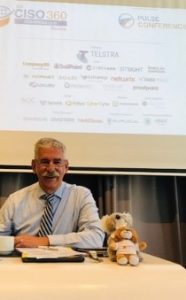 Having worked in IT for nearly 40 years, specialising in information risk, protection, security and compliance for the latter 26 years or so, Marcus decided to retire in mid-2017 but was quickly lured back to take on an advisory role for a Tier 1 UK bank. At the start of 2018, Marcus also joined the Cymmetria Advisory Board as Chief Risk Officer.
Having worked in IT for nearly 40 years, specialising in information risk, protection, security and compliance for the latter 26 years or so, Marcus decided to retire in mid-2017 but was quickly lured back to take on an advisory role for a Tier 1 UK bank. At the start of 2018, Marcus also joined the Cymmetria Advisory Board as Chief Risk Officer.
In his previous role at Lloyd’s Marcus was responsible for ensuring that risks to IT and information were understood and correctly mitigated in a cost effective manner throughout the corporation, both in the UK and in its overseas locations. His role extended to providing second line of defence assurance to this effect to Executive, Senior and Line Management. Marcus also had corporate responsibility for Data Protection and Privacy and provided thought leadership on emerging digital related risks pertinent to the Lloyd’s market.
Prior to joining Lloyd’s, Marcus was a Principal Advisor for KPMG, working in IT Advisory and specialising in information security strategy definition and implementation. Before that Marcus was Head of Information Security for Abbey National plc, a leading UK bank, a position he held for six years following seven years as Information Risk and Security Manager for Barclaycard, a leading card issuer and merchant acquirer and part of Barclays plc.
 Lady Olga Maitland, Founder, Defense and Security Forum and Chairman, Copenhagen Compliance – has wide experience in all major Governance, risk Management and Compliance issues in general and global Fraud and Corruption problems in particular. She is a special adviser to a number of dignitaries and a widely sought after speaker at all Major Conferences on several Corporate Governance issues. Lady Olga is a former British MP for the Conservative party. Prior to her political career she was a reporter for the Fleet Street News Agency, a columnist in the London.
Lady Olga Maitland, Founder, Defense and Security Forum and Chairman, Copenhagen Compliance – has wide experience in all major Governance, risk Management and Compliance issues in general and global Fraud and Corruption problems in particular. She is a special adviser to a number of dignitaries and a widely sought after speaker at all Major Conferences on several Corporate Governance issues. Lady Olga is a former British MP for the Conservative party. Prior to her political career she was a reporter for the Fleet Street News Agency, a columnist in the London.
Meet the Talk to the Board Panel of Board Directors 2022
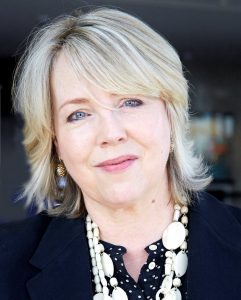 Jo Fairley is a serial entrepreneur best known for creating the Green & Black’s brand in 1991, which she ran with her husband and which was bought by Cadbury’s in 2005. She is a award-winning author & journalist, Jo is author of a series bestselling books on health and beauty and is a regular columnist, feature writer and journalist for the world’s leading magazines. The first-ever product to carry the UK Fairtrade Mark, for the past nine years, Green & Black’s has the ‘coolest food brand’ in Britain (according to the Cool Brands Survey), and now a $100 million a year brand. Still a working journalist, Jo has written for a wide range of newspapers and magazines from The Times to The Mail on Sunday’s YOU Magazine, and as a ‘Wonder Woman’ business guru for Telegraph Woman Online. Jo is in demand as a brand consultant, alongside her own ventures which have included an organic bakery and natural food store and a nine-room wellbeing centre in her home town of Hastings. Most recently, she created and launched The Perfume Society, which works with the fragrance industry seeking to improve individuals’ sense of smell in a pleasurable and engaging way
Jo Fairley is a serial entrepreneur best known for creating the Green & Black’s brand in 1991, which she ran with her husband and which was bought by Cadbury’s in 2005. She is a award-winning author & journalist, Jo is author of a series bestselling books on health and beauty and is a regular columnist, feature writer and journalist for the world’s leading magazines. The first-ever product to carry the UK Fairtrade Mark, for the past nine years, Green & Black’s has the ‘coolest food brand’ in Britain (according to the Cool Brands Survey), and now a $100 million a year brand. Still a working journalist, Jo has written for a wide range of newspapers and magazines from The Times to The Mail on Sunday’s YOU Magazine, and as a ‘Wonder Woman’ business guru for Telegraph Woman Online. Jo is in demand as a brand consultant, alongside her own ventures which have included an organic bakery and natural food store and a nine-room wellbeing centre in her home town of Hastings. Most recently, she created and launched The Perfume Society, which works with the fragrance industry seeking to improve individuals’ sense of smell in a pleasurable and engaging way
 Geoff’s background in teaching, HR, marketing, communications and sustainability is considerable. During his 25 years with Unilever (a global corporation with a turnover of £50 billion, 170,000 employees in 90 countries around the world), his experience has been truly global working across Africa, the Middle-East and Turkey, Australasia and Asia, Europe and the Americas. Geoff’s HR experience has spanned leadership and talent development, organisation change, capability development with particular reference to marketing, and business transformation with purpose at its core. Early in his career he was responsible for graduate recruitment and development, talent, acquisitions and development across Unilever’s emerging markets. Under his leadership he developed Unilever’s global talent and leadership centre of expertise. More recently he devoted his time, energy and effort to leading ground-breaking work where the HR function has played a central role in transforming Unilever’s business model with purpose at its core. Today McDonald is very much sought after as a speaker, inspiring and provoking organisations to put purpose and well-being at the centre of everything they do. His experience in Unilever, under the pupilage of Paul Polman, allows him to provide very practical insights and to speak on how to go about truly embedding PURPOSE and address the taboo associated with wellbeing (particularly mental health) within a large global multinational organisation. With this experience comes some real learning on what may or may not work. He recently had the opportunity to engage with Pope Francis on how we create a more sustainable and inclusive economy through his work with the Global Foundation. McDonald is devoting a significant amount of time to consulting to organisations, helping them define and embed Purpose as a driver of growth and profitability. He was recently appointed as Strategic Advisor to the global PR and communications firm Burson-Marsteller in the area of Corporate Purpose and Organisation Change. He too consults on how to address the stigma linked to depression and anxiety in the workplace, with a particular emphasis on raising awareness of these issues and providing some practical strategies as to how one might go about addressing this growing modern illness. He is a very active campaigner for breaking the stigma associated with Mental Health in the Corporate world and has participated in a number of BBC programmes and campaigns regarding this subject, as well as writing and producing articles for the Huffington Post, the Financial Times and HR related journals. He previously convened a meeting at No 10 Downing Street with David Cameron and CEOs from Footsie 100 Companies to address their role and agree actions to break stigma in the corporate world. He too provided some support to the Royal Foundation (Princes William, Harry and Kate) in their mental health campaign. McDonald is a co-founder of a network called ‘Minds@Work’, which has grown from 14 members to over 1000 in two years. Its purpose being to inspire and equip individuals to break the stigma of mental ill health in the organisations they work in. He has also recently been appointed as an Advisor to the Global Mental Health Campaign and has been asked to join the Prince’s Trust Youth Opportunity Taskforce with the purpose of creating change that will unlock the potential in the UK’s youth.
Geoff’s background in teaching, HR, marketing, communications and sustainability is considerable. During his 25 years with Unilever (a global corporation with a turnover of £50 billion, 170,000 employees in 90 countries around the world), his experience has been truly global working across Africa, the Middle-East and Turkey, Australasia and Asia, Europe and the Americas. Geoff’s HR experience has spanned leadership and talent development, organisation change, capability development with particular reference to marketing, and business transformation with purpose at its core. Early in his career he was responsible for graduate recruitment and development, talent, acquisitions and development across Unilever’s emerging markets. Under his leadership he developed Unilever’s global talent and leadership centre of expertise. More recently he devoted his time, energy and effort to leading ground-breaking work where the HR function has played a central role in transforming Unilever’s business model with purpose at its core. Today McDonald is very much sought after as a speaker, inspiring and provoking organisations to put purpose and well-being at the centre of everything they do. His experience in Unilever, under the pupilage of Paul Polman, allows him to provide very practical insights and to speak on how to go about truly embedding PURPOSE and address the taboo associated with wellbeing (particularly mental health) within a large global multinational organisation. With this experience comes some real learning on what may or may not work. He recently had the opportunity to engage with Pope Francis on how we create a more sustainable and inclusive economy through his work with the Global Foundation. McDonald is devoting a significant amount of time to consulting to organisations, helping them define and embed Purpose as a driver of growth and profitability. He was recently appointed as Strategic Advisor to the global PR and communications firm Burson-Marsteller in the area of Corporate Purpose and Organisation Change. He too consults on how to address the stigma linked to depression and anxiety in the workplace, with a particular emphasis on raising awareness of these issues and providing some practical strategies as to how one might go about addressing this growing modern illness. He is a very active campaigner for breaking the stigma associated with Mental Health in the Corporate world and has participated in a number of BBC programmes and campaigns regarding this subject, as well as writing and producing articles for the Huffington Post, the Financial Times and HR related journals. He previously convened a meeting at No 10 Downing Street with David Cameron and CEOs from Footsie 100 Companies to address their role and agree actions to break stigma in the corporate world. He too provided some support to the Royal Foundation (Princes William, Harry and Kate) in their mental health campaign. McDonald is a co-founder of a network called ‘Minds@Work’, which has grown from 14 members to over 1000 in two years. Its purpose being to inspire and equip individuals to break the stigma of mental ill health in the organisations they work in. He has also recently been appointed as an Advisor to the Global Mental Health Campaign and has been asked to join the Prince’s Trust Youth Opportunity Taskforce with the purpose of creating change that will unlock the potential in the UK’s youth.

Until Spring 2022, Laura Tenison was the Founder and CEO of the UK’s leading specialist Parent and Baby Brand, JoJo Maman Bébé. The business was digital first, supported by a large portfolio of localised stores across the UK and ROI with growing international trade sales into the US, EU and Middle East. Laura instigated a total sale of the business to NEXT Plc and Davidson Kempner PE, leaving the board in place to run the company as a standalone brand in order to maintain its exceptional market position and value.
Laura grew JoJo organically from start-up in 1993 to become the UK and Ireland’s leading independent brand in the sector with a team of 1,000. Pre the Covid-19 pandemic, JoJo also benefitted from a wholly owned US subsidiary, with stores, e-commerce, trade sales and a DC.
Since launch, the business delivered exceptional product innovation and fashion design, bringing to market hundreds of new styles and nursery items, which have since become family essentials.
Under Laura’s leadership JoJo was a trailblazer in better business practices, including; leading the way for inclusivity and diversity in modelling, using recycled materials, employee profit share schemes, employing those serving prison sentences, offering job opportunities to past asylum seekers, managing a charity based in Africa, counting numerous Down’s Syndrome employees among the team, up-cycling shop-fit and even being a dog friendly work place. This ethos of putting people and the planet above profit resulted in JoJo achieving Certified B Corporation status.
Her new passion is to bring business colleagues together to engage in collaborative thinking and creativity, delivering the antithesis of digital working. The luxury accommodation and extraordinary venue allows dispersed teams to congregate, share experiences, good locally sourced food & drink and form loyal bonds with each other and their employers. www.wonderfulescapes.co.uk
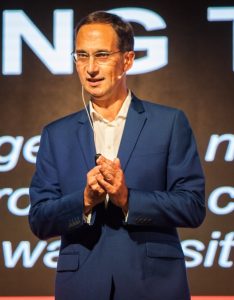 One of the world’s leading retail technology speakers, Daniel Bobroff believes in the power of everyone to be a game changer. Passionate about the digitalization of retail and the changing customer experience, his unusual journey has led to a unique perspective that informs many of the world’s best-known retailers, agencies and brands. He is motivational and visionary, but always provides a roadmap. Daniel is the founder of Coded Futures, a creative technology advisory firm focused on the future of retail, and formerly the co-founder and Investment Director of ASOS Ventures, the online fashion company’s venture capital division. In over two decades as an innovator, entrepreneur, mentor and investor, he has pioneered advertising in video games, developed chart topping video games that sold in their millions, and is, today, a leading thought leader and keynote speaker in the world of retail and fashion technology. Daniel is acknowledged as the pioneer of in-game advertising – “selling Mario to the admen” – starting an advertising medium that is today an eightbillion-dollar market. He built Microtime, the first – and for over a decade the leading – digital advertising agency for in-game advertising and advergaming. Close contact to the gaming world led Daniel to build and lead Deibus Studios, a video games developer with studios in both the UK and France and which emerged as a leading talent for extreme sports, creating games for PlayStation, Xbox and Nintendo, achieving combined sales in excess of 50 million units. Daniel has founded, invested in and led companies within a range of innovative technologies including virtual reality, visual search, e-commerce and ad-tech. At the world-leading online fashion retailer ASOS, Daniel created the company’s venture capital arm. His mission was to identify and invest in the latest innovations within retail and fashion technology. He built an enviable network of cutting-edge retail tech talent, developing partnerships covering the latest in marketing, production and customer experience. Scouting for the latest innovations across retail’s value chain, Daniel talks about the technology driven future of retail. He evangelizes the need for personal, immediate, and interactive mobile experiences, new filters, the importance of culture and how all retail businesses will become technology businesses. He is a highly sought-after international speaker, recently delivering keynote addresses for the Retail Institute, Salesforce, Google and Facebook.
One of the world’s leading retail technology speakers, Daniel Bobroff believes in the power of everyone to be a game changer. Passionate about the digitalization of retail and the changing customer experience, his unusual journey has led to a unique perspective that informs many of the world’s best-known retailers, agencies and brands. He is motivational and visionary, but always provides a roadmap. Daniel is the founder of Coded Futures, a creative technology advisory firm focused on the future of retail, and formerly the co-founder and Investment Director of ASOS Ventures, the online fashion company’s venture capital division. In over two decades as an innovator, entrepreneur, mentor and investor, he has pioneered advertising in video games, developed chart topping video games that sold in their millions, and is, today, a leading thought leader and keynote speaker in the world of retail and fashion technology. Daniel is acknowledged as the pioneer of in-game advertising – “selling Mario to the admen” – starting an advertising medium that is today an eightbillion-dollar market. He built Microtime, the first – and for over a decade the leading – digital advertising agency for in-game advertising and advergaming. Close contact to the gaming world led Daniel to build and lead Deibus Studios, a video games developer with studios in both the UK and France and which emerged as a leading talent for extreme sports, creating games for PlayStation, Xbox and Nintendo, achieving combined sales in excess of 50 million units. Daniel has founded, invested in and led companies within a range of innovative technologies including virtual reality, visual search, e-commerce and ad-tech. At the world-leading online fashion retailer ASOS, Daniel created the company’s venture capital arm. His mission was to identify and invest in the latest innovations within retail and fashion technology. He built an enviable network of cutting-edge retail tech talent, developing partnerships covering the latest in marketing, production and customer experience. Scouting for the latest innovations across retail’s value chain, Daniel talks about the technology driven future of retail. He evangelizes the need for personal, immediate, and interactive mobile experiences, new filters, the importance of culture and how all retail businesses will become technology businesses. He is a highly sought-after international speaker, recently delivering keynote addresses for the Retail Institute, Salesforce, Google and Facebook.
 Robin’s focus was to execute the transformation of WPP Groups IT environment to enable the group’s current strategic direction. Robin joined WPP from Alcatel-Lucent, where he held the role of Executive Vice-President for Business and IT Transformation, and was a member of the Alcatel-Lucent Management Committee. Prior to this, Robin was a business leader in both Royal Mail and Diageo, in charge of business and IT-based transformation programmes. At Royal Mail, he oversaw the introduction of a number of new technology-led products and services for customers, while executing the modernisation of the organisation’s technology assets. Robin is now with Hallo Healthcare Group.
Robin’s focus was to execute the transformation of WPP Groups IT environment to enable the group’s current strategic direction. Robin joined WPP from Alcatel-Lucent, where he held the role of Executive Vice-President for Business and IT Transformation, and was a member of the Alcatel-Lucent Management Committee. Prior to this, Robin was a business leader in both Royal Mail and Diageo, in charge of business and IT-based transformation programmes. At Royal Mail, he oversaw the introduction of a number of new technology-led products and services for customers, while executing the modernisation of the organisation’s technology assets. Robin is now with Hallo Healthcare Group.
Meet the Speaker Panel 2022 including (to date)
 A French and Swiss citizen, Dimitri Chichlo started his career in Ukraine in 2004, then moved to Switzerland in 2009, working mainly for international financial institutions in the fields of operational risk and cybersecurity. In 2017, he completed an Executive MBA at INSEAD. In 2019, he joined the Supervisory board of Ukreximbank, the third largest and State-owned bank in Ukraine, as vice-chairman and chair of the Operations and Digital Committee. In 2020, he founded his consultancy practice in cybersecurity and digital transformation, AndSecure. Since February 24th, 2022, he is actively involved into providing humanitarian support to Ukraine. He currently lives in Geneva. JSC Ukreximbank is one of the three largest Ukrainian banks and the largest in the country’s network of correspondent banks. The National Bank of Ukraine classifies JSC Ukreximbank as a systemically important bank. The country (represented by the Cabinet of Ministers) owns the entire block of shares, which means that the bank is 100 percent state-owned.
A French and Swiss citizen, Dimitri Chichlo started his career in Ukraine in 2004, then moved to Switzerland in 2009, working mainly for international financial institutions in the fields of operational risk and cybersecurity. In 2017, he completed an Executive MBA at INSEAD. In 2019, he joined the Supervisory board of Ukreximbank, the third largest and State-owned bank in Ukraine, as vice-chairman and chair of the Operations and Digital Committee. In 2020, he founded his consultancy practice in cybersecurity and digital transformation, AndSecure. Since February 24th, 2022, he is actively involved into providing humanitarian support to Ukraine. He currently lives in Geneva. JSC Ukreximbank is one of the three largest Ukrainian banks and the largest in the country’s network of correspondent banks. The National Bank of Ukraine classifies JSC Ukreximbank as a systemically important bank. The country (represented by the Cabinet of Ministers) owns the entire block of shares, which means that the bank is 100 percent state-owned.
 Andreas Wuchner is an experienced and recognized senior executive leader with extensive international general management experience of global diversified businesses and a proven track record. He has held positions in Switzerland, Germany, USA, Australia and the United Kingdom.
Andreas Wuchner is an experienced and recognized senior executive leader with extensive international general management experience of global diversified businesses and a proven track record. He has held positions in Switzerland, Germany, USA, Australia and the United Kingdom.
Andreas served as General Manager (CIO), Chief Information Security Officer (CISO), Head IT Security & Operations, Head IT Risk Control and Head IT Risk Management / Governance & Compliance for several large scale and international organizations including Novartis Pharmaceuticals, UBS, Deutsche Bank, Credit Suisse and Hewlett Packard. He also served on company advisory and supervisory boards helping cyber start-up organizations with his experience in Strategic planning, go-to Market activities, financing advice for seed funding and round A to C plus product/service design.
As an Angel Investor Andreas invests in Cyber Security organizations where he then participates actively in the growth and future of the organization in scope. With more than 25 years of experience and knowledge in all aspects of Information Security, IT-Security & Information Risk management, Andreas supports clients all over the world with his own 2 companies. His special focus areas are within highly regulated environments such as life science and financial services.
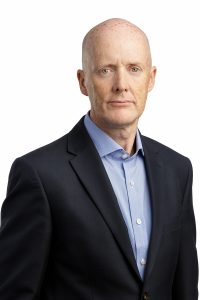
Andrew is the Resident CISO at Proofpoint, which he joined in 2021 from Mastercard, where he was the Chief Security Officer of their subsidiary firm, Vocalink, a firm which provides the transactional backbone of the financial services industry in the UK.
Prior to that Andrew held the CISO role at the UK’s Air Traffic Control provider, NATS, where he oversaw a security transformation and contributed to the design of the next generation air traffic control system. Andrew has also held CISO roles at two top tier global law firms, Allen & Overy LLP and Clifford Chance LLP. In between these roles, Andrew was a Principal Analyst at Forrester Research where he covered the role of the CISO and Security Culture & Awareness as two of his speciality areas.
Andrew was recognized as “European CISO of the year” (2018), and has previously won awards for devising and leading the “Best security awareness program” (2015).
Andrew holds a Master’s degree in information security, is a regular speaker at global security conferences and has contributed to media outlets such as the Wall Street Journal, the Financial Times, the Washington Post, Wired magazine and the Times newspaper. Andrew also appeared in the CNBC documentary entitled “Rise of the Machines”.
 Ashley “AJ” Nurcombe is a highly passionate and driven technologist with a proven track record of competency in the field of Security, Networks, DLT and Mobility, with over a decade of relevant experience.
Ashley “AJ” Nurcombe is a highly passionate and driven technologist with a proven track record of competency in the field of Security, Networks, DLT and Mobility, with over a decade of relevant experience. Craig joined Bridewell in 2022 as a Principal Lead Consultant, where he provides expert cyber security consultancy and leadership to clients across critical sectors. In his role, he guides organisations in information security, risk management, PCI DSS, strategic planning, and business auditing. With a strong technical and leadership background, Craig has worked with organisations across FinTech and financial services, CNI, and retail and luxury brands. He also holds numerous certifications from leading industry bodies including CISSP, CAA ASSURE, and is a PCI CSS Qualified Security Assessor.
Craig joined Bridewell in 2022 as a Principal Lead Consultant, where he provides expert cyber security consultancy and leadership to clients across critical sectors. In his role, he guides organisations in information security, risk management, PCI DSS, strategic planning, and business auditing. With a strong technical and leadership background, Craig has worked with organisations across FinTech and financial services, CNI, and retail and luxury brands. He also holds numerous certifications from leading industry bodies including CISSP, CAA ASSURE, and is a PCI CSS Qualified Security Assessor.
 Kevin Duffey is Chief Executive of the Cyber Rescue Alliance, Co-Chair of Cyber Committee at The Security Institute, and Advisor to the Police Digital Security Centre in the UK. Cyber Rescue is a leading specialist in helping Boardroom Executives to measure, monitor and mitigate potential harm from fast-evolving evolving cyber-attacks. Cyber Rescue helps executives at hundreds of large & medium sized firms worldwide. Members include the Bank of China, Janus Henderson, Kaplan, Penguin, Petrofac, Phoenix, Rothschilds, Sainsbury’s, Tesco, Virgin and regulators in several countries.
Kevin Duffey is Chief Executive of the Cyber Rescue Alliance, Co-Chair of Cyber Committee at The Security Institute, and Advisor to the Police Digital Security Centre in the UK. Cyber Rescue is a leading specialist in helping Boardroom Executives to measure, monitor and mitigate potential harm from fast-evolving evolving cyber-attacks. Cyber Rescue helps executives at hundreds of large & medium sized firms worldwide. Members include the Bank of China, Janus Henderson, Kaplan, Penguin, Petrofac, Phoenix, Rothschilds, Sainsbury’s, Tesco, Virgin and regulators in several countries.
Kevin enjoyed two careers before his current role.
- In “Cyber,” Kevin was CEO Nordics, CEO Asia, and a UK Board Member at Britain’s largest IT systems integrator, Logica (now CGI). He led digital innovation for banks, telcos and governments in over 20 countries, with clients ranging from GCHQ and the MoD, to the Reserve Bank of India and the Government of the Philippines.
- In “Rescue,” Kevin was Group GM at International SOS, where he oversaw the evacuation of 4,000 people from Egypt and Libya during the Arab Spring. He deployed response to the Fukushima nuclear crisis in Japan and the Ebola crisis in Sierra Leone. He was then headhunted to run G4S International, managing staff in 30 countries as they moved billions of dollars of gold and high-denomination currencies. Kevin joined Cyber Rescue in 2015.
Kevin welcomes contact from delegates, at Kevin.Duffey@CyberRescue.co.uk or via LinkedIn, at https://www.linkedin.com/in/kevduffey/
 Dr Paul Kennedy is a Principal Cyber Security Consultant and Chartered Engineer with over 10 years of experience in operational cyber security. At QinetiQ, Paul has worked on cybersecurity for the F-35 combat jet and has worked with the MOD in developing novel cryptographic techniques and advising senior stakeholders on future developments in cryptography. A former RAF Officer, he has worked in military cyber and communications across the UK, NATO, and in the Falkland Islands. Describing himself as a recovering academic, he was previously an Engineering Degree Programme Leader at the University of Glasgow.
Dr Paul Kennedy is a Principal Cyber Security Consultant and Chartered Engineer with over 10 years of experience in operational cyber security. At QinetiQ, Paul has worked on cybersecurity for the F-35 combat jet and has worked with the MOD in developing novel cryptographic techniques and advising senior stakeholders on future developments in cryptography. A former RAF Officer, he has worked in military cyber and communications across the UK, NATO, and in the Falkland Islands. Describing himself as a recovering academic, he was previously an Engineering Degree Programme Leader at the University of Glasgow.
 Deborah has over 25 years of information security and organisational resilience knowledge skills and experience, operating in complex and demanding environments, delivering strategic frameworks in line with the risk appetite of the organisations she has worked for.
Deborah has over 25 years of information security and organisational resilience knowledge skills and experience, operating in complex and demanding environments, delivering strategic frameworks in line with the risk appetite of the organisations she has worked for.
Deborah has a wealth of experience as a leading information security and crisis management professional, with a strong track record in successfully delivering security assurance to organisations across multiple industry sectors, significantly at Royal Mail and at the global commercial real estate company, Cushman & Wakefield. Deborah has recently joined Liberty Speciality Markets as their Director of Information Security.
A substantial part of her career has been in the finance industry where she successfully implemented continuous improvement programmes in both information security and crisis management.’
 Richard is a Chief Scientist and Capability Leader at QinetiQ Ltd. Richard has undertaken many years of research studying disruptive effects on Critical Infrastructure assets, particularly for high impact low frequency events. He has helped operators of essential services understand their risk to novel disruptive threats and has developed tools, techniques and products which support improved resilience of the Critical Infrastructure. Richard is the author of over 70 peer reviewed technical and journal papers on the topics above. He is a Fellow of the Institute of Engineering and Technology (IET), registered with the Engineering Council UK (ECUK) as a Chartered Engineer (C.Eng.) a HPEM Fellow of the SUMMA foundation; a QinetiQ Fellow; and a Member of the Register of Security Engineers and Specialists (RSES).
Richard is a Chief Scientist and Capability Leader at QinetiQ Ltd. Richard has undertaken many years of research studying disruptive effects on Critical Infrastructure assets, particularly for high impact low frequency events. He has helped operators of essential services understand their risk to novel disruptive threats and has developed tools, techniques and products which support improved resilience of the Critical Infrastructure. Richard is the author of over 70 peer reviewed technical and journal papers on the topics above. He is a Fellow of the Institute of Engineering and Technology (IET), registered with the Engineering Council UK (ECUK) as a Chartered Engineer (C.Eng.) a HPEM Fellow of the SUMMA foundation; a QinetiQ Fellow; and a Member of the Register of Security Engineers and Specialists (RSES).
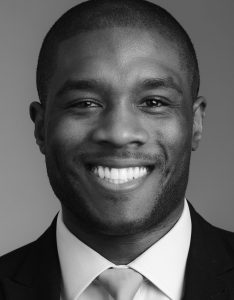 Toks is responsible for the global delivery of information security at Dentons, the world’s largest law firm. He has over 20 years’ experience working in security, technology and privacy, across a number of industries.
Toks is responsible for the global delivery of information security at Dentons, the world’s largest law firm. He has over 20 years’ experience working in security, technology and privacy, across a number of industries.
Toks is an experienced and strategic business risk leader. He has a particular passion for strategy and team building and development. His core skillset, developed over the years includes security operations and architecture, risk management and risk driven investment, data protection, compliance and audits, and enterprise culture, awareness and training.
Toks has contributed to the business and technology community through information sharing, groups, speaking engagements and multi-industry networking. As strong supporter of education and schools, he has provided advice in areas of security, data protection, user awareness and cloud transformation.
With 28 years’ experience in the Cybersecurity space, Peter is a seasoned global practitioner and technology pioneer, having created numerous offerings in this space. His background spans from operational security response management, systems engineering, and complex technical vendor integrations — to strategic alliances throughout the security and risk markets. His areas of expertise are in Public Key Cryptography (PKI), Secure Communications, Endpoint Protection and Threat & Risk management. He has developed and brought dozens of security products to market internationally and is on a constant journey, assisting partners and clients as the Cybersecurity market continues to meet the challenges of the day.

Jonathan is an experienced lawyer who advises multinational companies on matters involving risk, compliance and technology across Europe. He has handled legal matters in more than 60 countries involving emerging technology, corporate governance, reputation, internal investigations, marketing, branding and global privacy policies. Jonathan has counselled a range of clients on breach prevention, mitigation and response.
Jonathan is one of three co-authors of the LexisNexis definitive work on technology law, “Managing Risk: Technology & Communications”. He is a frequent broadcaster for the BBC and other channels and appeared on BBC News 24 as the studio guest on the Walport Review. Jonathan features again in the Thomson Reuters Stand Out Lawyers for 2022 where he has been featured every year since the survey began.
Interestingly, Jonathan is Co-Chair of the New York State Bar Association’s Rapid Response Committee (RRC) and a member of the Section’s Executive Committee. The RRC responds to world events on behalf of NYSBA. Activities have included support for lawyers and the judiciary in Poland, France, the UK, Ecuador, Spain, Cameroon, Austria, Afghanistan, Mexico, Myanmar & Indonesia. The RRC also made representations after the collapse of the EU-US Safe Harbor scheme for data transfer and is currently heavily involved in assisting the Ukrainian Bar Association in some of their efforts. He has also led the RRC’s relations with other non-profit and advocacy groups. This is a voluntary position.
 Owanate is the founder of Bestman Solutions, a firm dedicated to helping leaders hire cyber security professionals. He advises CISOs and Executives on market factors that impact their growth plans and designs bespoke solutions to address this. Firmly embedded in the cyber security space, he possesses a global core network of well-respected and proven security specialists.
Owanate is the founder of Bestman Solutions, a firm dedicated to helping leaders hire cyber security professionals. He advises CISOs and Executives on market factors that impact their growth plans and designs bespoke solutions to address this. Firmly embedded in the cyber security space, he possesses a global core network of well-respected and proven security specialists.
Owanate has spent almost a decade recruiting in the Cyber Security field. Before this, he recruited Technology and Operational Risk specialists and successfully staffed a number of high profile banking regulatory programmes.
He is also a keen industry speaker and writer for security associations and international publications. Outside of Security and staffing, Owanate is interested in all things Martial Arts.
 Máté Barany has over 12 years of experience working on complex implementation projects across EMEA. Previously as a Solutions Architect and now as an Account Executive, the key to Máté’s success is focusing on the End User Experience – implementing a “Customer First” approach when working with Partners and Customers – while at the same time ensuring key business and technical requirements are met. Máté loves a challenge and believes there is always room for improvement.
Máté Barany has over 12 years of experience working on complex implementation projects across EMEA. Previously as a Solutions Architect and now as an Account Executive, the key to Máté’s success is focusing on the End User Experience – implementing a “Customer First” approach when working with Partners and Customers – while at the same time ensuring key business and technical requirements are met. Máté loves a challenge and believes there is always room for improvement.
 Tim currently serves as the EMEA AVP cybersecurity sales specialists at Imperva. With over 20 years’ experience in the cybersecurity and anti-fraud industry, Tim began his career in technical support, and moved on to System Engineering. He began his leadership career when he established Entrust Inc. in Australia in 2003 and was made Vice-President Asia Pacific in 2006. Following this he has held numerous leadership roles in large cybersecurity vendors, including Trend Micro, RSA Security, and now Kaspersky Labs, as well as spending time in the cyber-security practise of KPMG.
Tim currently serves as the EMEA AVP cybersecurity sales specialists at Imperva. With over 20 years’ experience in the cybersecurity and anti-fraud industry, Tim began his career in technical support, and moved on to System Engineering. He began his leadership career when he established Entrust Inc. in Australia in 2003 and was made Vice-President Asia Pacific in 2006. Following this he has held numerous leadership roles in large cybersecurity vendors, including Trend Micro, RSA Security, and now Kaspersky Labs, as well as spending time in the cyber-security practise of KPMG.
 Vicki Gavin is Head of Information Security & Compliance at Kaplan International and also Former Chair of The Women’s Security Society.
Vicki Gavin is Head of Information Security & Compliance at Kaplan International and also Former Chair of The Women’s Security Society.
Kaplan International is a leading provider of international education. Students travel to study with Kaplan International Languages from over 150 countries around the world Kaplan offers programs for students to enter UK, USA and Australian university degree courses at undergraduate, postgraduate and doctorate level. Successful completion at the required level guarantees entrance to one of more than 1,000 degree courses at dozens of partner Universities.
Vicki is a recognized expert in security, privacy and resilience. She was Chairperson of the Women’s Security Society and has won Cybersecurity Woman of the Year and Unsung Hero, Marathon (Wo)man awards.
Currently Vicki is Head of Information Security & Risk Management for Kaplan International, having previously held leadership positions with Cyber Rescue Alliance, Artemis Fund Management, Kensington Mortgages, The Economist, Barclaycard, Barclays Bank, Barclays Capital, Dresdner Kleinwort Wasserstein and the Toronto Stock Exchange. Vicki is MBCI and CRISC Certified, holds a BSc in Physics and a Postgraduate Diploma in Teaching Adults..
 Holly Foxcroft, is head of neurodiversity in cyber research and consulting at recruitment consultancy Stott and May. Holly is a Royal Navy veteran who began her cyber career at Advanced Resource Managers, a Portsmouth-based cyber recruitment specialist. She became a champion of neurodiversity in the industry in 2014, when her son was diagnosed with autism, and has since thrown herself into researching the subject, including putting herself through university as a single mother and campaigning for change. “Driving for change to be neuroinclusive and supporting the neurominority community is my passion. Winning the [Diversity Champion] award for me is shining a light that mine and other neuroinclusive supporters’ work is really being recognised in the field of diversity and cyber” In her role at Stott and May, Foxcroft is working on the development of policies in best practice, guidance, training and consulting around neurodiversity in cyber, and better supporting neurodivergent cyber professionals, not just through the recruitment process, but through effecting cultural change and challenging biases in the workplace.
Holly Foxcroft, is head of neurodiversity in cyber research and consulting at recruitment consultancy Stott and May. Holly is a Royal Navy veteran who began her cyber career at Advanced Resource Managers, a Portsmouth-based cyber recruitment specialist. She became a champion of neurodiversity in the industry in 2014, when her son was diagnosed with autism, and has since thrown herself into researching the subject, including putting herself through university as a single mother and campaigning for change. “Driving for change to be neuroinclusive and supporting the neurominority community is my passion. Winning the [Diversity Champion] award for me is shining a light that mine and other neuroinclusive supporters’ work is really being recognised in the field of diversity and cyber” In her role at Stott and May, Foxcroft is working on the development of policies in best practice, guidance, training and consulting around neurodiversity in cyber, and better supporting neurodivergent cyber professionals, not just through the recruitment process, but through effecting cultural change and challenging biases in the workplace.


